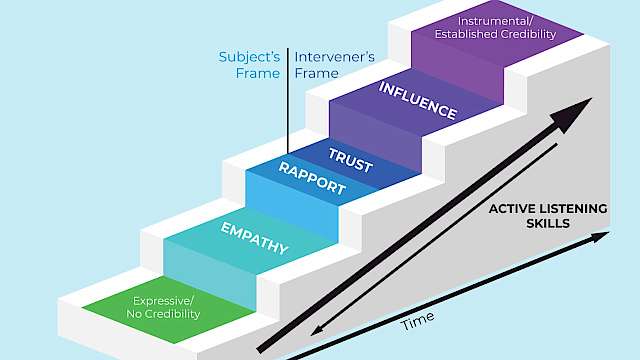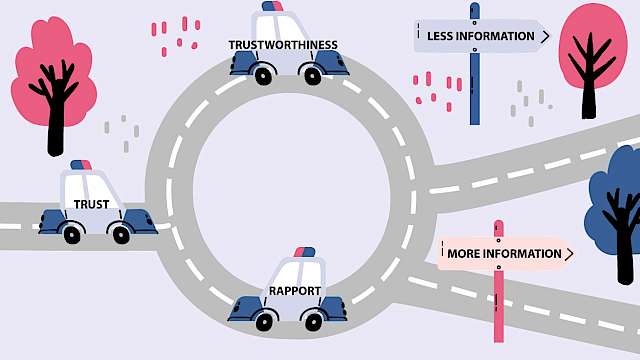
Communication
CSR#18 OUT NOW! Highlighting the complexities of human behaviour in security contexts, the articles featured in this issue offer invaluable insights into fostering effective communication strategies for countering emerging threats.
- CREST Security Review
- Issue 1 : Eliciting Information
- Issue 2 : Cyber Security
- Issue 3 : Transmission
- Issue 4 : After Islamic State
- Issue 5 : Networks
- Issue 6 : Decision-Making
- Issue 7 : Transitions
- Issue 8 : Influence
- Issue 9 : Data
- Issue 10 : Stress And Resilience
- Issue 11 : Risk
- Issue 12 : COVID-19
- Issue 14 : Trust
- Issue 13 : Technology
- Issue 15 : Trauma
- Issue 16 : Innovation
- Issue 17 : Misinformation
- Issue 18 : Communication

Article
David Neequaye
How People Decide What to Disclose in Investigative Interviews
Article
| 
Article
Mattias Sjöberg
Interpersonal sensemaking: A powerful tool for facilitating cooperation in suspects
Article
| 
Article
Nick van der Klok, Miriam Oostinga, Luke C. Russell, Michael A. Yansick
Accelerating Influence: Challenging the Linear Paradigm of Suicide Negotiation
Article
| 
Article
Lina Hillner
Unexplored Interactions: Disentangling Trustworthiness, Trust and Rapport
Article
| 
Article
Lorraine Hope
Navigating Cross-Cultural Challenges in Rapport Building and Information Gathering: Preparing interviewers for effective interactions
Article
| 
Article
Vincent Denault, Aldert Vrij
“The eyes can’t lie”: misconceptions about nonverbal communication and why they matter
Article
| 
Article
Dana Roemling, Jack Grieve
Forensic Authorship Analysis
Article
| 
Article
Becky Phythian
Law enforcement information sharing for the 21st Century
Article
| 
Article
Laura G. E. Smith
Digital Traces of Offline Mobilisation
Article
| 
Article
Laura Stevens, Tia Bennett, Sarah Rockowitz, Heather Flowe
The role of digital technologies (GBVxTech) in communicating gender-based violence
Article
| 
Article
Anastasia Kordoni, Shengnan Liu, Miriam Koschate-Reis, Mark Levine
Investigating the Influence of Hybrid Social Identities in Online Communities
Article
| 
Article
Marc Kydd, Lynsay Shepherd, Graham Johnson, Andrea Szymkowiak
Love Bytes – Improving Romance Fraud Prevention
Article
| 
Article
Nadine Salman, Zainab Al-Attar
Neurodivergence and Extremism: Considerations for Practice
Article
| 
Article
Austin C. Doctor, Gina Ligon, Samuel T. Hunter
Militant Leadership and the Severity of Terrorism in Conflict Environments
Article
| 
Article
Rachel Monaghan, Bianca Slocombe
The Prosecution Landscape for Extremist Actors in the UK
Article
| 
Article
Joel Busher, Sarah Marsden, Leena Malkki
Radicalisation and Counter-Radicalisation Research: Past, Present and Future
Article
|